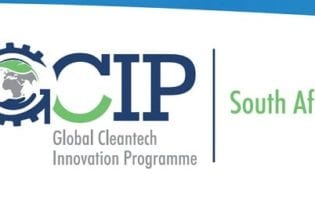The Global Cleantech Innovation Programme (GCIP) for SMEs is a global initiative which promotes clean technology innovation and supporting SMEs and start-ups. GCIP was first implemented in South Africa in 2011 and now has ongoing activities in...
eThekweni Municipality is synonymous with its Marianhill Landfill waste to energy programme. But the City of Durban should also be credited for its sustainable development, and is particularly proud of its Water and Sanitation Customer Service...
Call for papers The majestic Lord Charles Hotel, in the Western Cape, South Africa, will play host to the Institute of Waste Management of Southern Africa’s (IWMSA) much anticipated and highly influential WasteCon 2014 Conference from 6 to 10...
Toilets that use microwave energy to transform human waste into electricity. Another captures urine and uses it for flushing. And still another turns excrement into charcoal. These aren’t your typical loos – they are part of a Bill & Melinda...
A whopping 30MW annually could be saved by cash-conscious South African municipalities should their water treatment plants decide to switch off Eskom and switch on the electricity-generating potential of methane-rich biogas. That’s according...
Michigan, US, banned throwing away yard waste in neighborhood trash bins 17 years ago because of concerns about landfill space. Now, though, both Democrats and Republicans are trying to limit the ban to allow for the creation of alternative energy....
For African countries, solar power is the solution to coal-based electricity supply – but this is easier said than done! Where does Africa really stand on solar power, and is our current coal supply dwindling? A shocking estimate of 1.5 billion...
The Energy Intensive Users’ Group (EIUG) has raised concerns that the price path for electricity in South Africa may place consumers and business under even greater pressure in the next few years, since the first round of tariff hikes in 2010....
“If we could switch the tyres on the world’s cars overnight to the best materials that are currently available, this alone would save up to 20 billion litres of fuel annually, reducing CO₂ emissions by 50 million metric tons a year.” Dr Axel...







